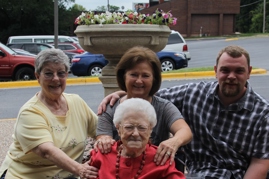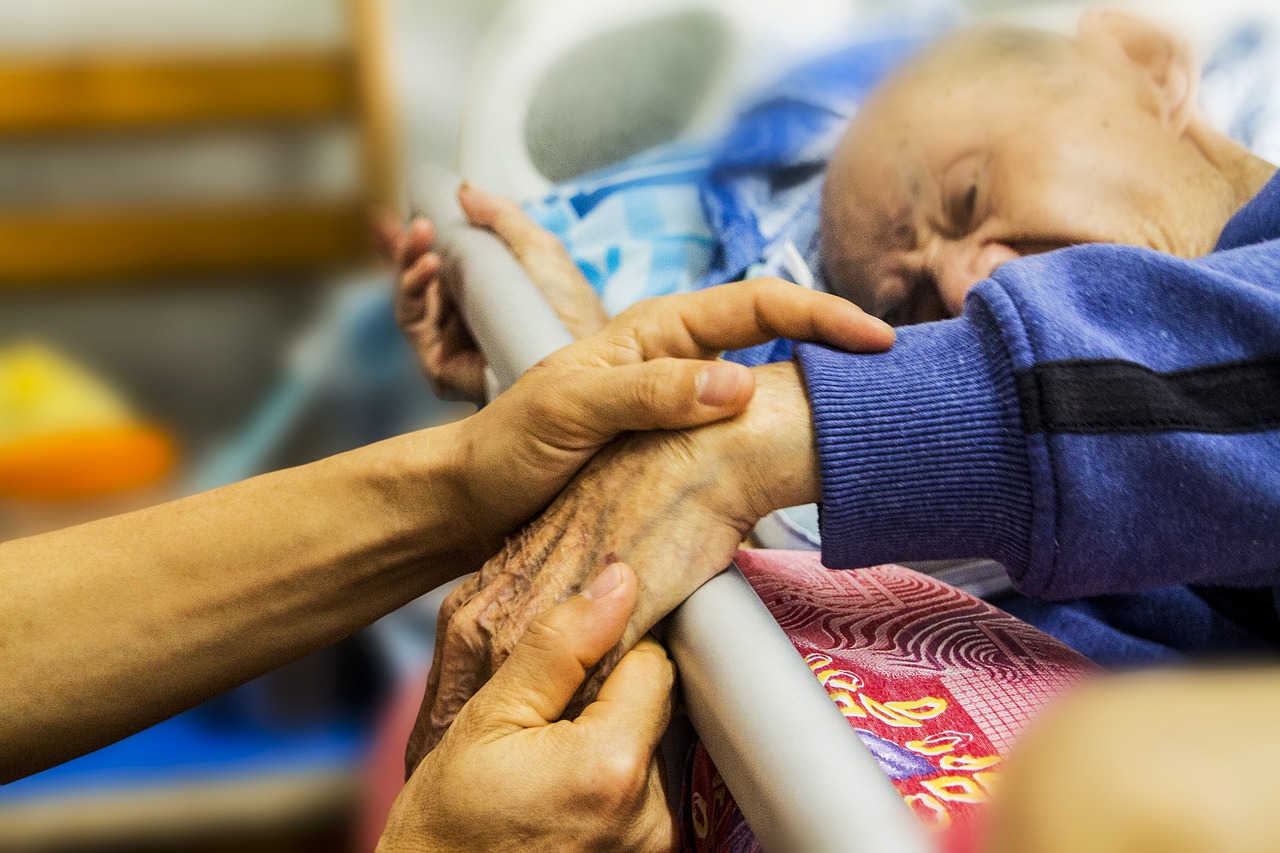Starting a Family Discussion About Hospice
 Even when we know a loved one is very sick, it can be hard to accept a terminal diagnosis. As your family negotiates their role as caregivers, communication is key to keeping everyone on the same page.
Even when we know a loved one is very sick, it can be hard to accept a terminal diagnosis. As your family negotiates their role as caregivers, communication is key to keeping everyone on the same page.
Your family is not alone when it comes to end of life care. Hospice care is a Medicare benefit that is designed to provide support to your loved one and the family during this final stage of life. Myths, misconceptions and lack of information often lead to families utilizing of this benefit too late. Talking through concerns at a family meeting early in the process can help get your loved one the care they need.
How to start the discussion
Start your family meeting by providing the latest update on your loved one’s medical condition. If your loved one has received a terminal diagnosis with six months or less to live, they are already eligible for hospice. Many questions may come up. Let’s look at a few of them:
-
What does your loved one want?
The focus of this meeting should be to determine the best way to carry out your loved one’s wishes. Begin by creating a list of the patient and family’s wishes. Areas you might address are:
-
Comfort and pain control, especially if there’s drug administration involved
-
Staying at home versus inpatient hospitalization or nursing home
-
Discontinuing chemotherapy or radiation and moving toward palliative care
-
Are we giving up?
There may be members of your family who believe that hospice means giving up hope. In truth, hospice creates a new kind of hope – that your loved one can live the rest of their days, however long that is, in comfort, free from pain. Patients who have the support of hospice live an average of 29 days longer than those with the same diagnosis who do not take advantage of hospice care.
-
What is hospice exactly?
Hospice is a system of care that provides comfort and caregiving to the terminally ill and their family. Each patient is assigned a care team that includes a nurse, aide, social worker, chaplain, bereavement support and volunteers, all overseen by a physician Medical Director. The team is flexible and dynamic and can provide a variety of services at most locations, including homes. Any medication required to keep the patient comfortable and medical supplies; such as diapers, wheelchairs, and hospital beds, are provided by the hospice. The goal of hospice is to keep the patient comfortable so they can have as much life as possible in their remaining days.
-
Who pays for all this care?
Hospice is 100 percent covered by Medicare. If your loved one is not eligible for Medicare, it can also be paid for by Medicaid or private insurance. For those with no means to pay, some hospices make arrangements to provide care at no cost to the patient.
Common concerns
It’s likely that your family meeting will extend beyond the questions above and into the gray areas, where emotions and concerns can overshadow rational and objective thinking when it comes to making the best decisions. Some common concerns that might come up include:
We’re private people. We can do this ourselves.
Family caregivers perform a heroic service by providing care while juggling work, home and family life. It can take a lot of trust to allow new people into your home and into your loved one’s care. Your hospice team is there to support your efforts and have medically-trained eyes on your loved one to ensure they are kept comfortable and to address any new issues that arise.
It’s not time for hospice yet.
The most common thing families say to us is that they wish they had started hospice sooner. Not only does hospice help to ensure that your loved one is comfortable, but your hospice team can also help your loved one and your family have important conversations, make funeral arrangements and take advantage of social services.
Our loved one is dying from cancer, but also has diabetes. We don’t want to stop the diabetes medication.
While hospice eligibility requires that a patient cannot be pursuing aggressive treatment options for the terminal illness, they do not need to stop medication for other conditions that is working for them. Whether it is another long-term medical condition or if they accidentally sprain their wrist in a fall or catch the flu, these other ailments will be treated.
Finding the right hospice provider for your family
Once you’ve had your family meeting, the next step is to find the right hospice. All hospice providers are not alike. Call several in your area and ask a few key questions to ensure they will be a good fit for your family, including:
-
Are you available 24 hours a day to answer questions and make patient visits?
-
Is your after-hours staff your own employees or are they contracted workers?
-
Do you make a commitment to being bedside when the patient is in their final moments?
It is difficult to accept that you will soon lose someone you love. However, when death is inevitable, the most loving thing you can do is to ensure they are comfortable and that their final wishes are met.
If you have questions about how Crossroads Hospice can help support you during this conversation or if you would like us to meet with your family about your options, please give us a call at 1-888-564-3405. We are available 24 hours a day, 7 days a week, 365 days a year to assist your family.
If you found this information helpful, please share it with your network and community.
Copyright © 2015 Crossroads Hospice. All rights reserved.




